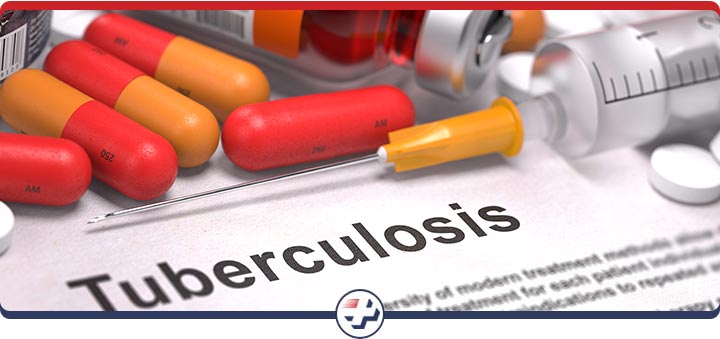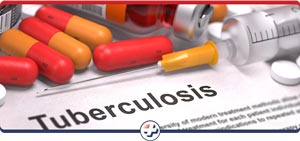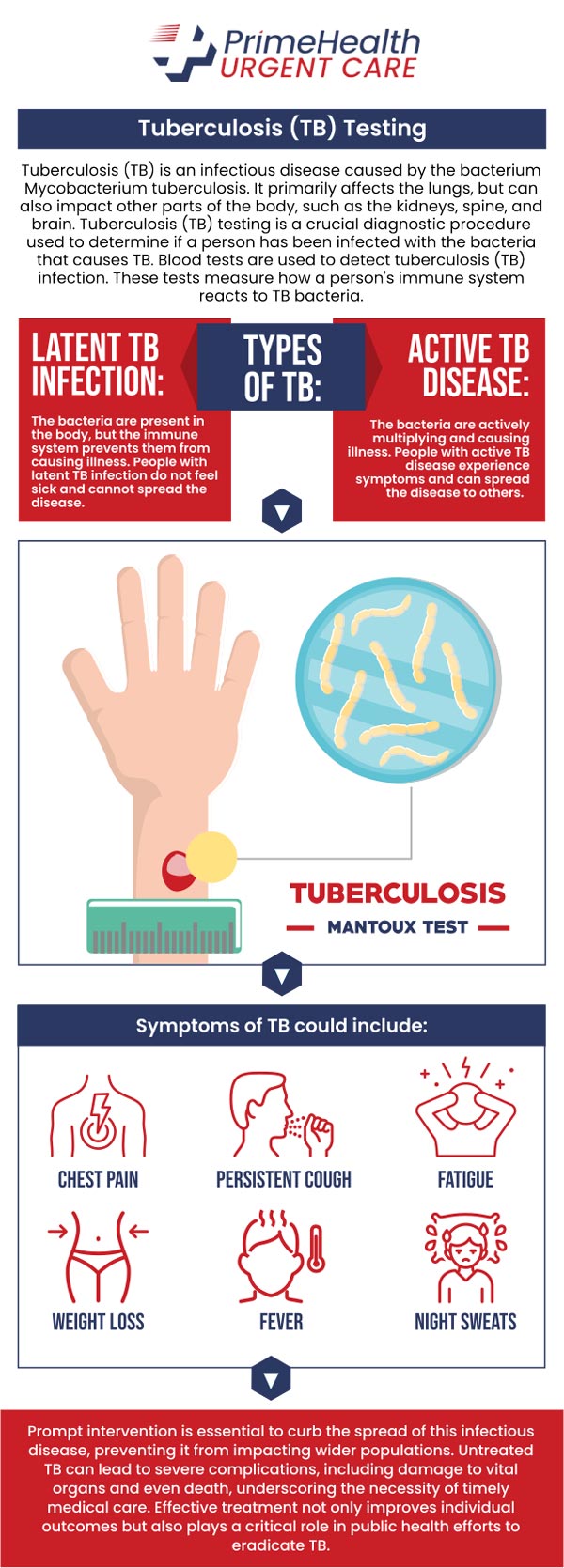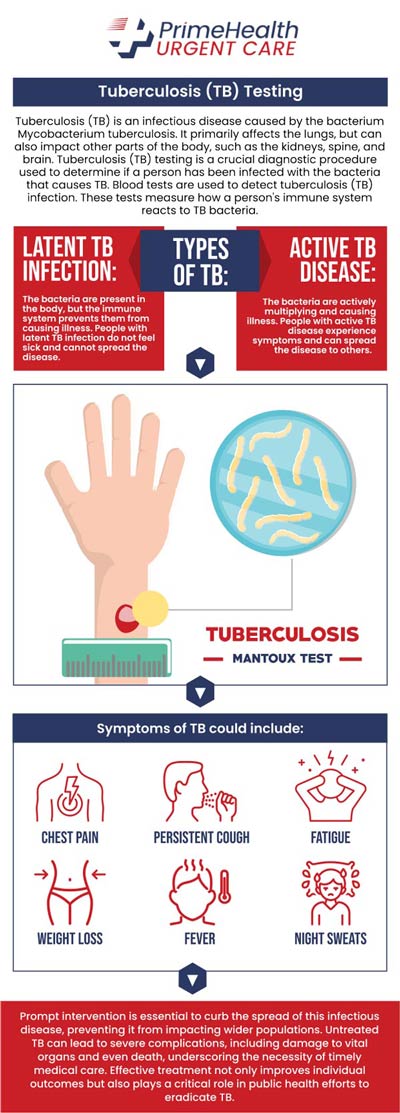TB Testing Service in Parrish, Bradenton, Sarasota, Lehigh Acres, Estero, Port Charlotte, West Bradenton, and Ellenton, FL
Get quick results with our TB testing results typically take 48 to 72 hours. Address concerns promptly with efficient detection. TB is contagious until treated; early identification is key. TB doesn’t resolve on its own; our proactive testing and intervention ensure a healthier outcome. Experience a streamlined testing process swift, accurate, and prioritizes your well-being. For more information, please contact us or request an appointment online. We have convenient locations to serve you in Parrish FL, Bradenton FL, Sarasota FL, Lehigh Acres FL, Estero FL, Port Charlotte FL, West Bradenton FL, and Ellenton FL.





Additional Services You May Need
- Abscesses
- Sports Injuries
- Bug & Animal Bites
- BV Testing
- COVID Testing
- Drug Testing
- EKG Testing
- Flu Shots
- Foreign Body Removal
- Laceration Repair
- Minor Burn Treatment
- Pelvic Exams
- Strep Testing
- STD Testing
- Illness/Injury
- Common Cold
- Auto Injuries
- Wegovy
- Respiratory Infection
- Coastguard Physicals
- Heat Exhaustion

Additional Services You May Need
• Abscesses
• Sports Injuries
• Bug & Animal Bites
• BV Testing
• COVID Testing
• Drug Testing
• EKG Testing
• Flu Shots
• Foreign Body Removal
• Laceration Repair
• Minor Burn Treatment
• Pelvic Exams
• Strep Testing
• STD Testing
• Fractures, Sprains, & Strains
• Splinting Treatment
• School & Sports Physicals
• TB Testing
• Tetanus Shot
• Urgent Care
• Vaccines
• Wound Care
• Work Injuries
• X-Ray
• Internal Lab Services
• Illness/Injury
• Occupational Medicine
• Employment Physicals
• Common Cold
• Auto Injuries
• Weight Loss
• Wegovy
• Mounjaro
• Telehealth
• Stitches
• Respiratory Infection
• Coastguard Physicals
• Sick Visits
• Sun Burns
• Heat Exhaustion
• Heat Stroke





